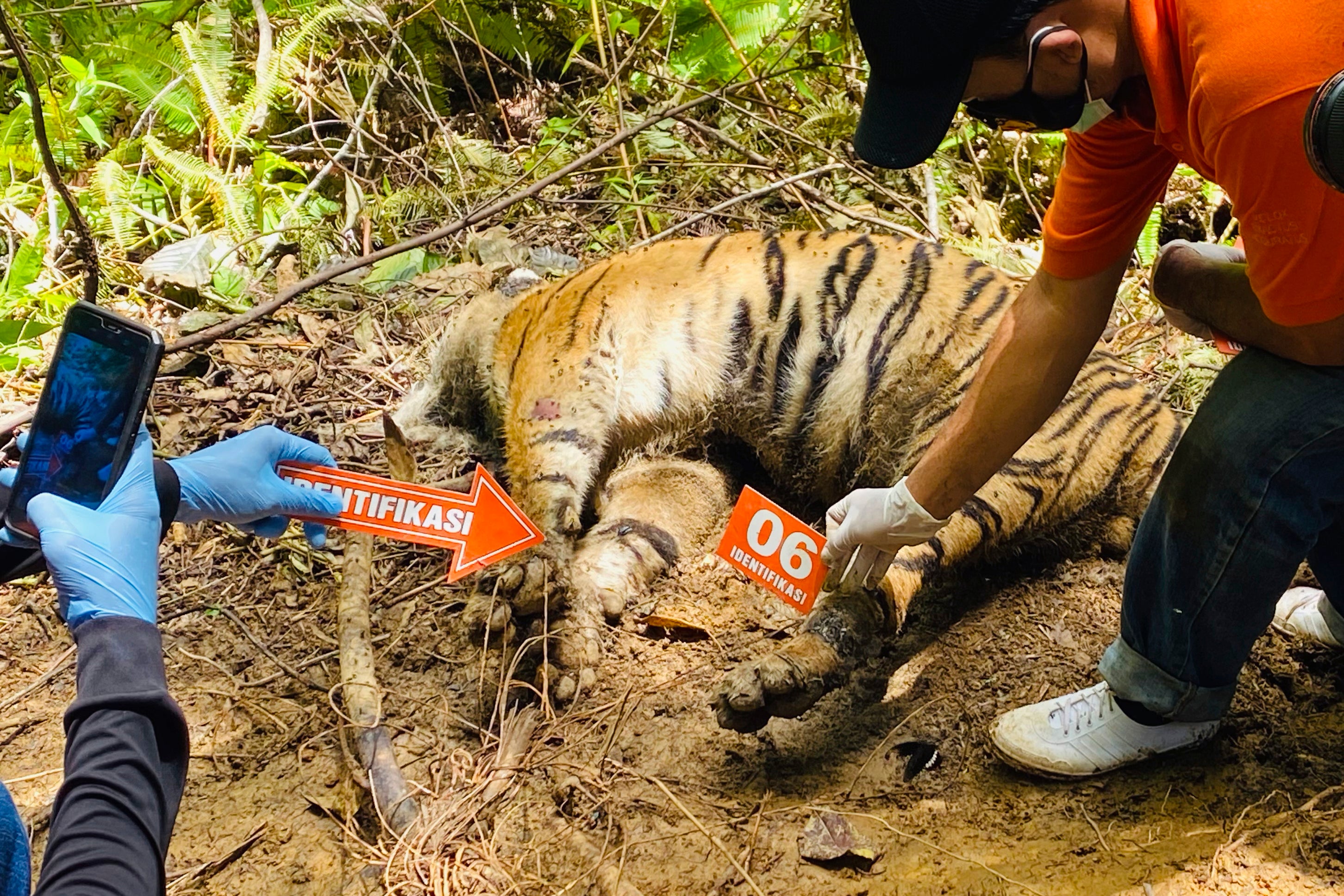Mother tiger and cubs found dead after being caught in poachers’ traps
The Sumatran tigers are critically endangered with fewer than 400 in the wild

A tiger and her two cubs have been found dead in traps set by poachers in a conservation area on Indonesia’s Sumatra island.
The three critically endangered Sumatran tigers – of which there are fewer than 400 in the wild – were found dead earlier this week.
The mother and a female cub were found on Tuesday in the Leuser Ecosystem Area, a six-million-acre forest for tiger conservation in the Aceh province in northern Sumatra.
The body of a male cub was found on Thursday about five metres (15 feet) away from his mother and sibling.
An examination determined they died from infected wounds caused by the traps, Agus Arianto, head of the conservation agency said.
He added that the traps were “intended to poach endangered animals for economic gain.”
Mr Arianto’s agency will work with law enforcement agencies in an investigation, he said.
In Indonesia, anyone caught hunting tigers could face jail time of up to five years and/or a fine of up to £5,000.
Sumatran tigers are the most critically endangered tiger subspecies, and they only remain in Sumatra after being made extinct in Bali and Java.
The poaching of the tiger family was the latest in a series of killings of endangered animals on Sumatra.
Conservationists have warned that the Covid pandemic has led to increased poaching as people turn to hunting to make money.
Hunters trap or shoot tigers for their skin, bones and canine teeth, which are in high demand as status symbols and for use in traditional medicine.
Poaching accounts for almost 80 percent of Sumatran tiger deaths, according to TRAFFIC, a global wildlife trade monitoring network.
Deforestation for palm oil, coffee, and acacia plantations, also threaten the tigers’ habitat.

In July, a female tiger was found dead with injuries caused by a trap in the South Aceh district.
In the same month, a decapitated elephant was found at a palm plantation in East Aceh. Police arrested an alleged poacher as well as four people accused of buying ivory taken from the elephant.
In June, police in Aceh also arrested four men for allegedly trapping a tiger and selling its remains for about £5,000.
At a press briefing, police displayed the tiger’s skin, teeth and bones confiscated from the suspected traffickers. The men also had the teeth and bones of a sun bear, the Jakarta Post reported citing authorities.
Also in June, another Sumatran tiger died after it ate a goat laced with rat poison in North Sumatra.
Join our commenting forum
Join thought-provoking conversations, follow other Independent readers and see their replies
Comments
Bookmark popover
Removed from bookmarks